Breastfeeding Week — How New Moms Can Benefit From Physiotherapy
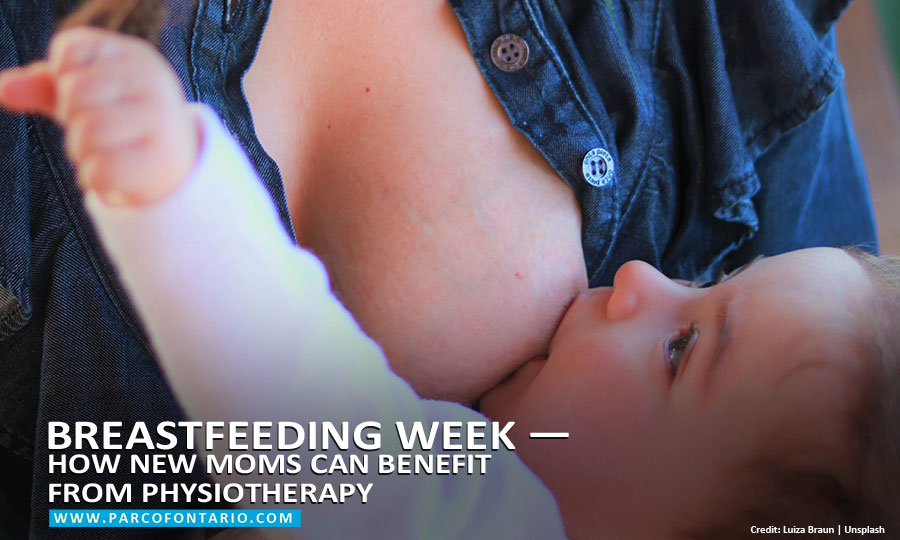
Breastfeeding Week is celebrated worldwide during the first week of August and is observed in more than 120 nations. Breastfeeding Week is celebrated to raise awareness of the advantages of breastfeeding for both mothers and their children, as well as the necessity of providing assistance to all breastfeeding moms.
Pregnancy and breastfeeding can be difficult times for women. Fortunately, new moms can take advantage of treatments, like physiotherapy to help them stay healthy and protect their baby’s well-being.
Breastfeeding
Benefits of Breastfeeding
Because of the health benefits to both infants and mothers, the World Health Organization recommends that newborns be given only breastmilk for the first 6 months of their lives. Studies also show that children who are breastfed for at least the first 6 months had fewer medical visits. Breastfeeding benefits both the child and the mother, allowing them to regain their pre-baby bodies.
How Breastfeeding Works
For the first week, your breasts will produce milk whether you need to breastfeed or not, but gradually over time, milk is produced based on your baby’s demands. The hormones prolactin and oxytocin are released by the pituitary gland. Prolactin instructs your breast milk-producing glands to produce breast milk. The hormone oxytocin causes the milk to be released through the let-down reflex. It causes the alveoli to constrict, causing the breast milk to be squeezed out into the milk ducts.
Issues When Breastfeeding

Breastfeeding, however, does not always come easily for all mothers. It generally comes with a slew of issues for new mothers, ranging from uncomfortable latching to body pains and sores, and, most commonly, moms who desire to breastfeed but are unable to do so have severe postpartum depression.
Some of the most common reasons for failure to successfully breastfeed are:
1. You’ve undergone breast surgery before
While there are few studies, it appears that women who have undergone breast or nipple operations can still produce some milk, but not enough to maintain a healthy nursing habit.
2. Your child may be unable to digest milk due to a rare genetic condition or a metabolic issue
Some babies are born with galactosemia, a disease that inhibits the baby’s body from digesting sugar. Children with this ailment are advised to drink soy milk instead.
3. You may be on long-term medication for a variety of health issues
Doctors advise women who are receiving chemotherapy to stop breastfeeding but continue to pump their milk but not to give it to their babies since high doses of methotrexate, a common component in chemotherapy drugs, can be harmful to the baby.
Physiotherapy for Mothers
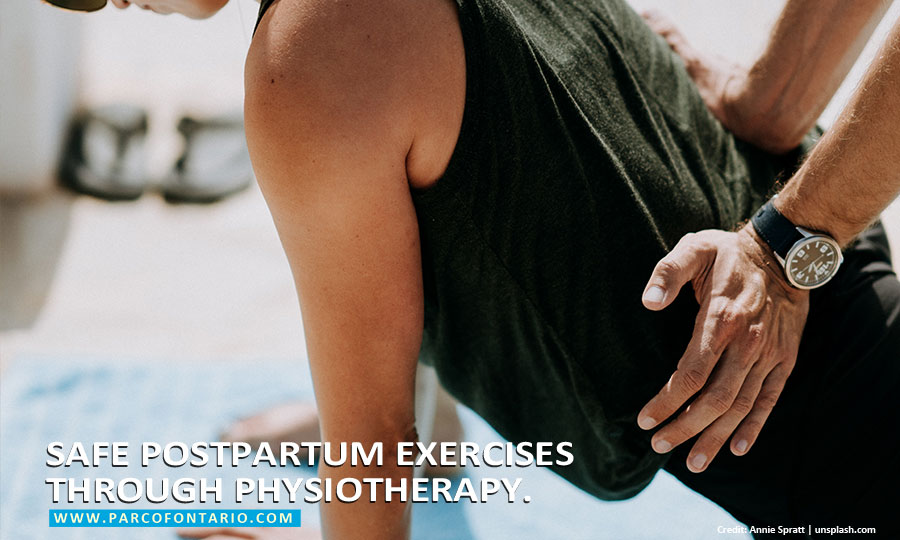
The body of a woman goes through many physical and mental changes, and most women dismiss these discomforts as a normal part of the postpartum period.
Physiotherapy for new moms, however, aids in the alleviation of pelvic and other body pains induced after childbirth, as well as the general well-being of the new mom. Physiotherapy for postnatal are exercises that help new moms get back to their active lifestyle and it is the physiotherapist’s job to assess postpartum risks and recommend postpartum exercises that will aid in healing various pelvic floor pain, back pain, and other various pains.
Breastfeeding and Physiotherapy
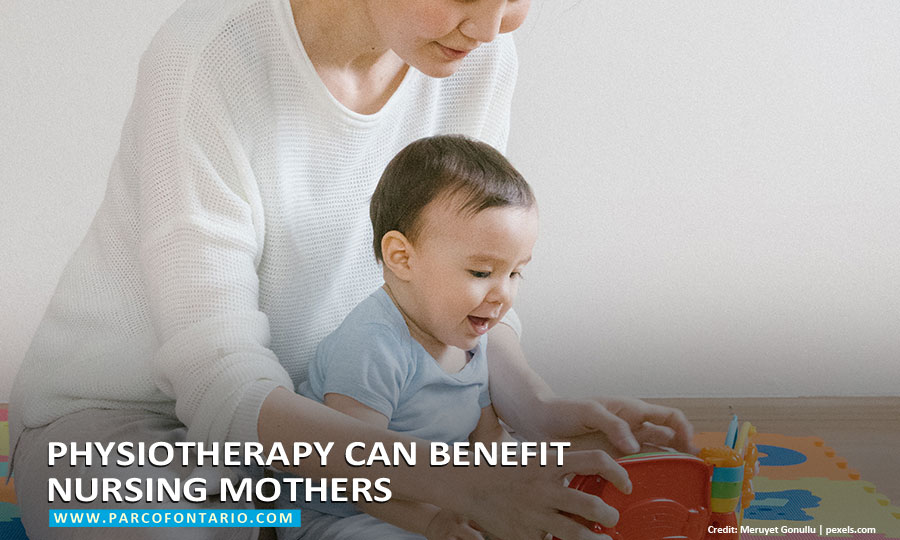
While physiotherapy is best known for treating and restoring mobility, health, and fitness, breastfeeding physiotherapy is gaining popularity among new moms seeking treatment with a variety of breastfeeding difficulties, including:
Mastitis is a condition that affects breastfeeding mothers and is caused by a clogged milk duct or germs invading the breast, producing pain and swelling. Some signs and symptoms include:
-
- Tenderness in the breasts
- Pain during breastfeeding
- Fever
Excessive milk production can induce breast engorgement, which causes the breast to stiffen and expand, making it harder for the infant to latch. Below are a few symptoms to watch out for:
-
- Flat nipples
- Swollen breasts
- Slightly swollen lymph nodes in the armpits
Blocked ducts, which are commonly caused by tight bras, straps, or improper latching, restrict the flow of milk, making your baby fussier. Signs and symptoms include:
-
- Slow milk flow in one breast
- Small white dot on the nipple
- Tender lumps on the breast.
What Can Physiotherapists Do to Help With Breastfeeding Problems?
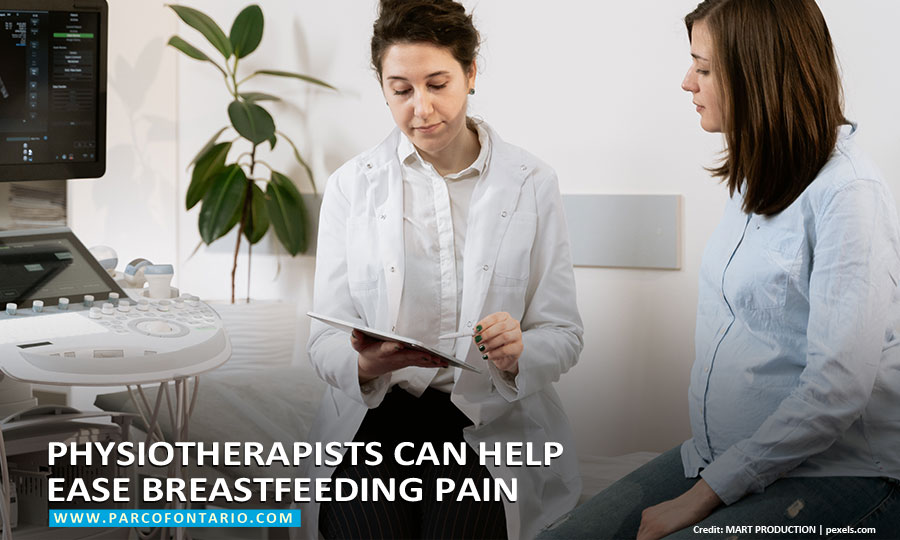
Physiotherapists who are familiar with breast therapy will typically ask for a comprehensive history of your breasts, as well as your nursing practice and a physical examination of your breasts to look for symptoms of infection or inflammation. The physiotherapist will then propose a treatment plan to aid you after a comprehensive assessment. A physiotherapist’s job is to assess, design, and prescribe exercise regimens, nursing positions, and life objectives that can assist new moms to overcome postpartum difficulties.
Breastfeeding physiotherapy treatments will involve the following:
1. Low-Intensity Laser Therapy
Low-level laser therapy is very good in speeding up wound healing and clearing blocked ducts as well as reducing inflammation. Babies can continue to eat on their normal schedules following the treatment.
2. Therapeutic Ultrasound
Due to the machine’s sent soundwaves, these soundwaves help to clear the blocked duct. Women who receive this treatment will not feel any pain and will just sense a slight warmth and massage of the region.
3. Effleurage or Draining Massage
Lymphatic drainage and effleurage are done by some suggested stretching when the mother is in a quiet sitting position.
Physiotherapy Benefits for New Moms
Physiotherapy can do more for moms than address breastfeeding issues. It can also:
1. Aid in the rehabilitation and recovery of new mothers’ health
Physiotherapy gives women strategies to cope with the changes in their bodies and lifestyles that occur during and after pregnancy, such as exercise regimens that assist new moms regain strength and mobility.
2. Strengthen the pelvic floor and abdominal muscles
Having a baby may mess with your body, and some women have urinary irregularities as a result of a weaker bladder. Through specifically customized exercises for each woman, physiotherapy evaluations and exercises help new moms recover and acquire better control of their muscles.
3. Help new moms resume their daily routines more quickly
Having a child may radically change your life, and while you may never be the same again, you can definitely return to the activities you enjoyed prior to the baby. Physiotherapy can help new moms deal with pain, reduce discomfort, and recover from injuries.
Due to the demands of a fast-paced culture and lifestyle, postnatal care is sometimes ignored, and physiotherapy will assist new moms in returning to their pre-pregnancy and pre-baby bodies.
With all of the benefits that physiotherapy may offer a new mom, it should be a part of your new mom’s care package. They’ll need all the help they can get to heal, recover, and go back to feeling like themselves while still caring for the new baby!
When Is It Best to See a Physiotherapist?
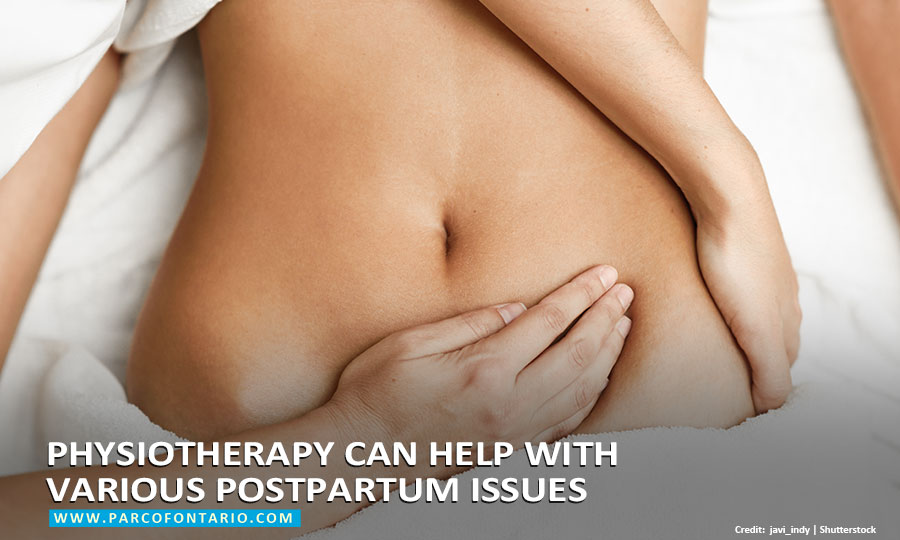
The first few weeks after childbirth may seem like a fog, consisting primarily of countless sleepless nights and acquiring a new skill set. It is especially difficult for women after such a big life shift. As a result, it is advised that women schedule a consultation with a women’s health physiotherapist within 6 weeks of giving birth.
So why should women book an appointment to see a women’s health physiotherapist even when an appointment with the obstetrician or the GP is in place?
1. Pelvic floor and abdominal muscle assessments
Pelvic floor examinations can be done vaginally or not, and are used to see how effectively a mother can elevate and relax the muscles of her pelvic floor, which are important for avoiding bladder and bowel leaks as well as maintaining sexual function.
The abdominal muscle exam on the one hand determines whether your abdominal muscles have returned to normal during pregnancy stretching. The physiotherapist will prescribe a treatment plan for you if the abdominal muscles have not recovered after eight weeks.
2. Bowel and urine function tests
The physiotherapist may want to know certain personal information, such as urine incontinence and discomfort during sexual activity. While these inquiries may seem uncomfortable, they are necessary for your physiotherapist to identify any concerns before they become chronic dysfunctions.
3. Return to exercise
Women’s postnatal exercise and rehabilitation differ, and while most women have similar experiences, the degrees of comfort for a woman’s recovery process will vary, and your physiotherapist will be the greatest judge of that.
Consulting with a physiotherapist will allow them to determine problems that need to be addressed and develop a treatment plan so you can adjust to life as a new mom more quickly.
Tips for Choosing a Physiotherapist
- Always go with a physiotherapist who has experience treating those with your condition.
- Look for a physiotherapist with specialized credentials.
- Take a look at what the physiotherapist has to offer.

Let us honour and pay respect to the toughest individuals on the planet this Breastfeeding Week: new moms! Give them the greatest new mom gift to help them through this life-changing experience.
Breastfeeding difficulties should not be one of the challenges of being a new mother and you might be wondering “Where’s the best physiotherapy near me?” If you’re ready to see a physiotherapist, contact The Physiotherapy and Rehabilitation Centres (PARC) of Ontario for professional guidance on your best possible route towards recovery.
Your health is the most essential factor for both you and your newborn. The next several years of your baby’s existence will be determined by your health. Let PARC of Ontario help you through your journey through motherhood.
Entrust your health to our large and highly specialized team who will cater to your every need. Call us at 905. 579. 9938 to book your appointment and visit us at one of our branches.










